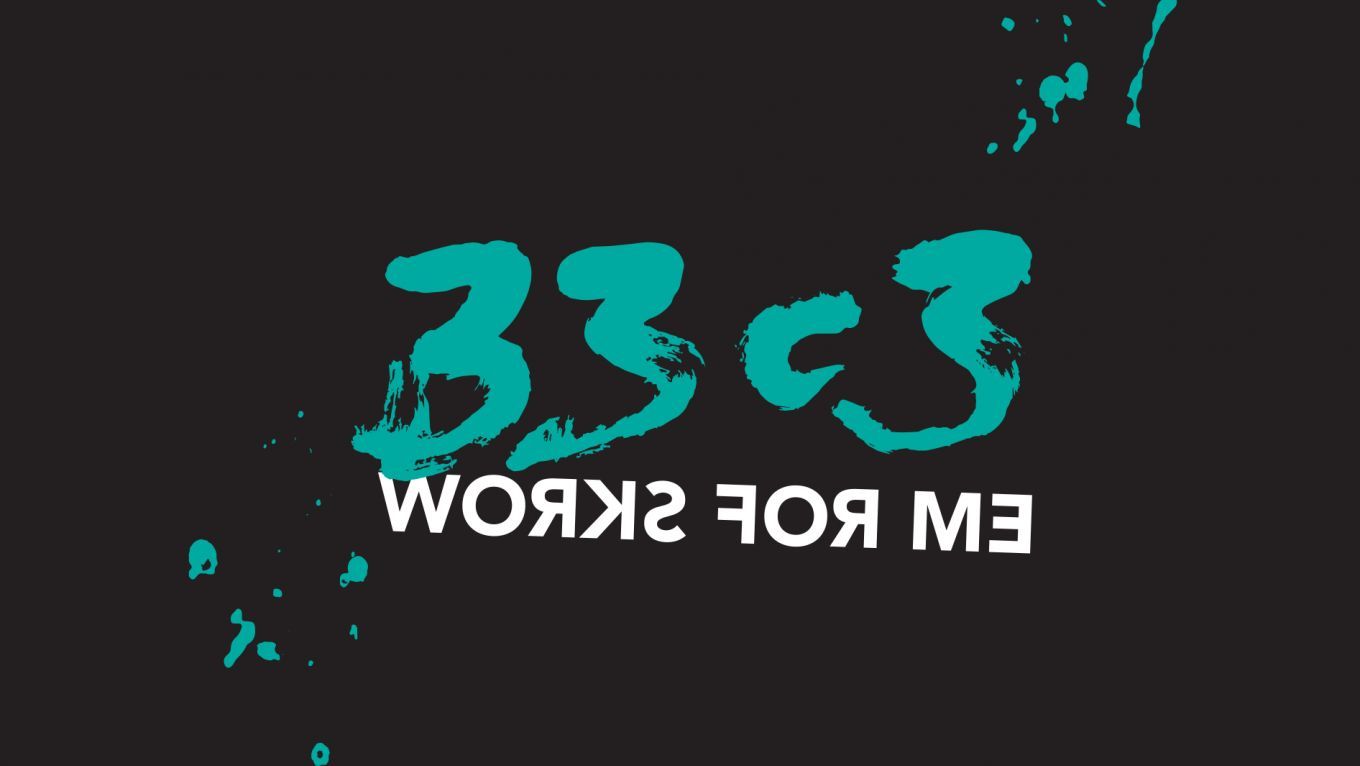Science
The Zcash anonymous cryptocurrency
or zero-knowledge succinct non-interactive arguments of knowledge for laypeople
Zcash is the third iteration of an extension to the Bitcoin protocol that provides true untraceability, i.e. fully anonymous transactions. It is arguably the first serious attempt to establish this extension, in the form of its own blockchain, beyond the form of an academic proposal. The talk provides an introduction to the magic that makes it work.
Despite everything, the Bitcoin cryptocurrency has not imploded or destroyed itself; it might be here to stay after all. That would presently include, however, its biggest flaw: The utter lack of anonymity. In fact, the famed Bitcoin blockchain is the world's most robust, transparent, and public financial accounting system ever.
The above means that Bitcoin's potential widespread adoption is nothing short of a privacy horror scenario straight out of Orwell. Every toilet paper purchase publicly recorded, verified, stamped, and approved. This should not be news to anyone.
In 2013, a few reputable cryptographers came up with some mathematical magic that would, if integrated into Bitcoin, enable anonymous transactions. This proposal has been described in an academic paper under the name Zerocoin and a year later improved in another paper under the name Zerocash. The plan had then shifted to establishing the system as an anonymous altcoin rather than to push for integration into Bitcoin itself. Zcash is the name of a company formed by the authors of Zerocash to develop and launch this altcoin; launch occured as planned on 28 October 2016.
This talk will introduce the audience to the mathematical and technical background of Zcash, and report on the state of the currency two months after its launch. A degree in mathematics is not required.
Note: The presenter is not affiliated with the Zcash company.
Additional information
| Type | lecture |
|---|---|
| Language | English |
More sessions
| 12/27/16 |
What are the politics and aesthetics of mapping? An introduction how cartography shapes cities and landscapes, creates borders and determines the perception of our environment. How an evolving mix of high-resolution satellite imagery, algorithm-based mappings and the huge amount of data of digitized cities will enhance these effects? And in contrast, how can maps be designed, that question the “objectivity” and “correctness” of conventional cartography?
|
| 12/27/16 |
Artificial intelligence and machine learning are in a period of astounding growth. However, there are concerns that these technologies may be used, either with or without intention, to perpetuate the prejudice and unfairness that unfortunately characterizes many human institutions. We show for the first time that human-like semantic biases result from the application of standard machine learning to ordinary language—the same sort of language humans are exposed to every day. We replicate a ...
|
| 12/27/16 |
Legend has it that most airline pilots will at one time have uttered the sentence "What's it Doing now?", whenever the autopilot or one of its related systems did something unexpected. I will be exploring some high-profile accidents in which wrong expectations of automation behaviour contributed to the outcome.
|
| 12/28/16 |
Jeder weiß ungefähr was ein Mikroskop ist und vielleicht hat man auch mal davon gehört das da immernoch dran geforscht wird – Stichwort Hochauflösungsmikroskopie (Nobelpreis 2014 in Chemie). Es gibt deutlich mehr Mikroskope in der professionellen Forschung als es Teleskope gibt, deutlich mehr – und da könnte man sich jetzt fragen: "Warum sehe ich so viele Bilder von Sterne, aber kaum Mikroskopiebilder von öffentlichen Einrichtungen und Stellen?". Um diese Frage zu beantworten will ich ...
|
| 12/28/16 |
Physicists are not computer scientists. But at CERN and worldwide, they need to analyze petabytes of data, efficiently. Since more than 20 years now, ROOT helps them with interactive development of analysis algorithms (in the context of the experiments' multi-gigabyte software libraries), serialization of virtually any C++ object, fast statistical and general math tools, and high quality graphics for publications. I.e. ROOT helps physicists transform data into knowledge. The presentation will ...
|
| 12/28/16 |
The Anthropocene is widely understood to mean the current <em>"period of Earth's history during which humans have a decisive influence on the state, dynamics and future"</em> of this planet. For several years, scientists in the <a href="http://quaternary.stratigraphy.org/workinggroups/anthropocene/" title="Website of the Working Group on the 'Anthropocene' (AWG)">Working Group on the 'Anthropocene' (AWG)</a> have <a ...
|
| 12/28/16 |
Applied IT security is largely a science-free field. The IT-Security industry is selling a range of products with often very questionable and sometimes outright ridiculous claims. Yet it's widely accepted practice among users and companies that protection with security appliances, antivirus products and firewalls is a necessity. There are no rigorous scientific studies that try to evaluate the effectiveness of most security products or strategies. Evidence-based IT security could provide a way ...
|

